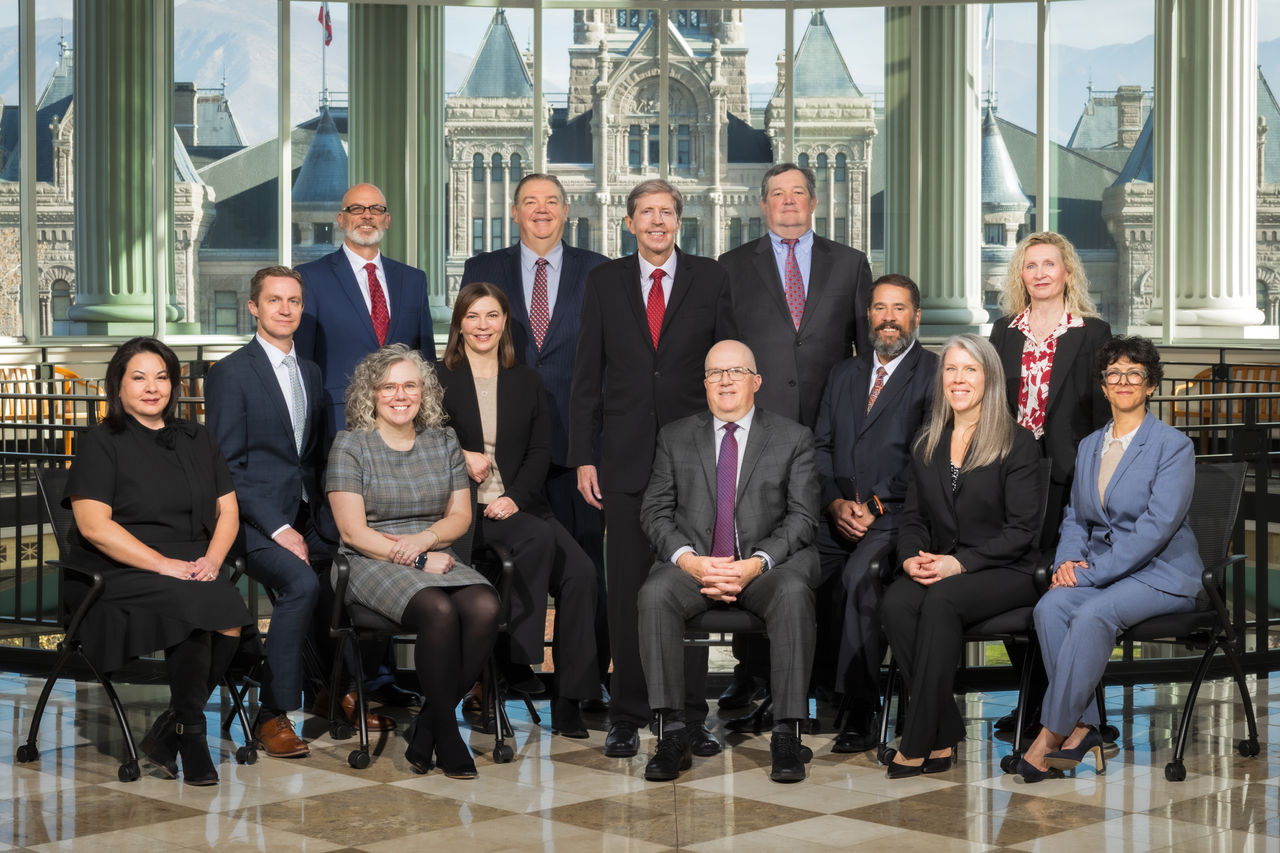Court Governance
Utah Judicial Council
The Utah Judicial Council is the policy-making body for the judiciary. It has the constitutional authority to adopt uniform rules for the administration of all court levels. The Council also sets standards for judicial performance, court facilities, information technology, support services, and judicial and non-judicial staff levels.
The Council consists of sixteen members. The Chief Justice of the Supreme Court chairs the Council. The other members include: one Supreme Court Justice; one Court of Appeals judge; six District Court judges; three Juvenile Court judges; three Justice Court judges; and a state bar representative. The State Court Administrator serves as secretariat to the Council. The members serve three-year terms.
- List of Judicial Council Members
- Utah Judicial Council History 1973-1997 - PDF
- Utah Judicial Council History 1998-2010 - PDF

The Judicial Council holds monthly meetings throughout the state. All Judicial Council meetings are open to the public. The meetings provide an opportunity for other branches of government, federal agencies, and citizens to have issues addressed by the judiciary. Individuals interested in appearing before the Council should contact the State Court Administrator.
Boards of Judges
The Judicial Council is required to establish a board of judges for each level of court (Utah Code of Judicial Administration Rule 1-301). Code of Judicial Administration Rule 1-304 identifies the authority and duties of boards of judges, including adopting administrative rules in accordance with the guidelines of the Council, advising the Council, supervising the implementation of Council policies, and serving as liaisons between judges and the Council.
- Members of Board of Appellate Court Judges
- Members of Board of District Court Judges
- Members of Board of Juvenile Court Judges
- Members of Board of Justice Court Judges
- Members of Board of Senior Judges
The Administrative Office of the Courts
Utah Code §78A-2-105 provides for the appointment of a State Court Administrator who shall serve at the pleasure of the Council, the Supreme Court, or both. The duties of the State Court Administrator are found in Utah Code §78A-2-107.
The State Court Administrator, per guidelines found in Utah Code §78A-2-108, is assisted by a Deputy Administrator; Assistant Administrator; Appellate; District; Juvenile; Justice Court Administrators; Trial Court Executives; and management staff in the following areas:
- Alternative Dispute Resolution
- Communications
- Court Security
- Data and Research
- Education
- Facilities
- Fairness and Accountability
- Finance
- Guardian ad Litem
- General Counsel
- Human Resources
- Information Technology
- Internal Audit
- Law Library
- Legislative support staff
The Administrative Office of the Courts provides staff to various Supreme Court rules committees, boards of judges, standing and ad hoc committees, and nominating commissions, and provides support to Clerks of Court and Trial Court Executives throughout the state.